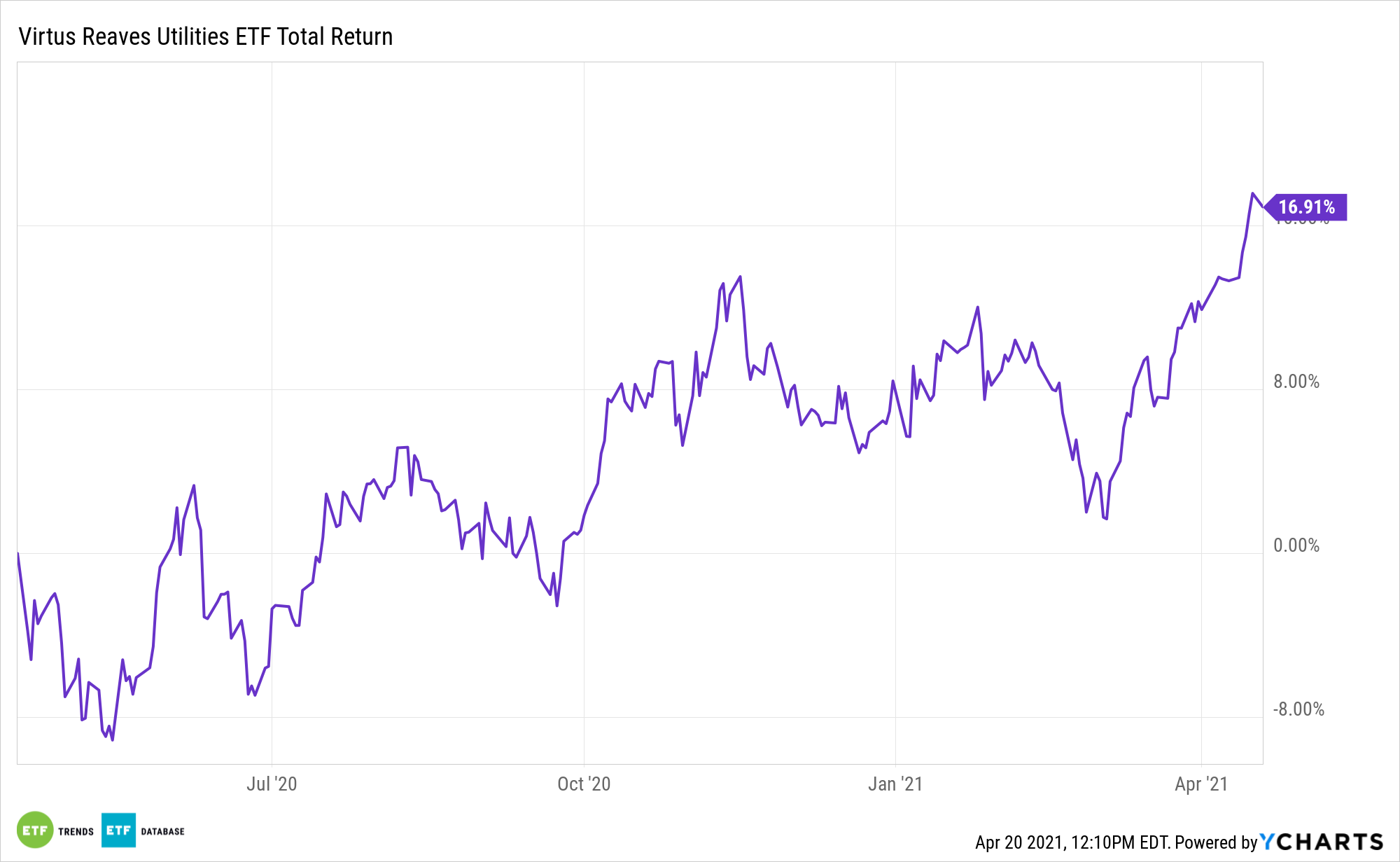Utilities stocks aren’t the first assets that come to mind when considering impact investing, but with certain strategies like the Virtus Reaves Utilities ETF (NYSEArca: UTES), investors can find some pleasant impact surprises in the sector.
UTES seeks to provide alpha via a combination of capital appreciation and income. The only actively managed fund in the utilities space, UTES invests not less than 80% of its net assets in equity securities of companies in the utility sector.
In order for a company to be included as part of its holdings, at least 50% of the company’s assets or customers must be committed to, or at least 50% of the company’s revenues, gross income or profits derived from, the provision of products, services or equipment for the generation or distribution of electricity, gas, or water.
“As a growing subset of investors look for their assets to achieve both positive returns – and positive societal change – they may want to consider utilities,” according to Reaves Asset Management. “True, the industry doesn’t currently have the lowest carbon footprint. But perhaps no other sector provides a greater opportunity to have a direct influence on the world, especially as it relates to the environment. We believe this is due in large part to where these businesses are headed and the investments necessary to get them there.”

Understanding the UTES ETF
Furthermore, by investing strictly in utilities, investors can avoid the challenges that can saddle solar panel or wind propeller manufacturers. From price decreases to the technological advances of competitors, it can be difficult to gain a long-term edge from a manufacturing perspective.
As far as the future of renewable energy goes, some market observers expect to see continued growth in a post-coronavirus pandemic environment and beyond. With more solar and wind energy projects slated to begin or continue, the pandemic should prove to be no more than a minor speed bump for the industry—a net positive for the future of UTES investors.
“For utilities, however, the positive future environmental impact is more clear. When investors participate in a utility company’s debt or equity offering, they are often providing capital for that utility to build new wind and solar facilities that will displace fossil-fuel sourced power and, ultimately, make the energy grid greener,” notes Reaves. “We believe that investors who buy and hold utility stocks help play a role in lowering the cost for these companies to raise capital to support renewable investments that will directly reduce their carbon footprints.”
For more news, information, and strategy, visit the Active ETF Channel.
The opinions and forecasts expressed herein are solely those of Tom Lydon, and may not actually come to pass. Information on this site should not be used or construed as an offer to sell, a solicitation of an offer to buy, or a recommendation for any product.








